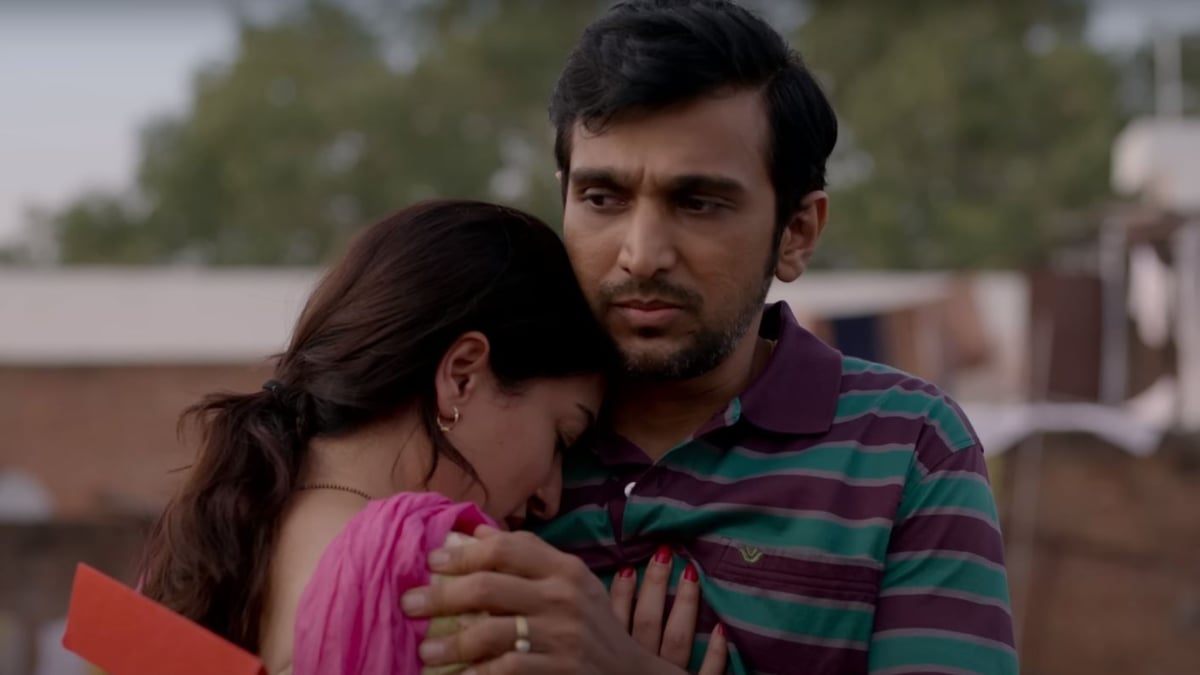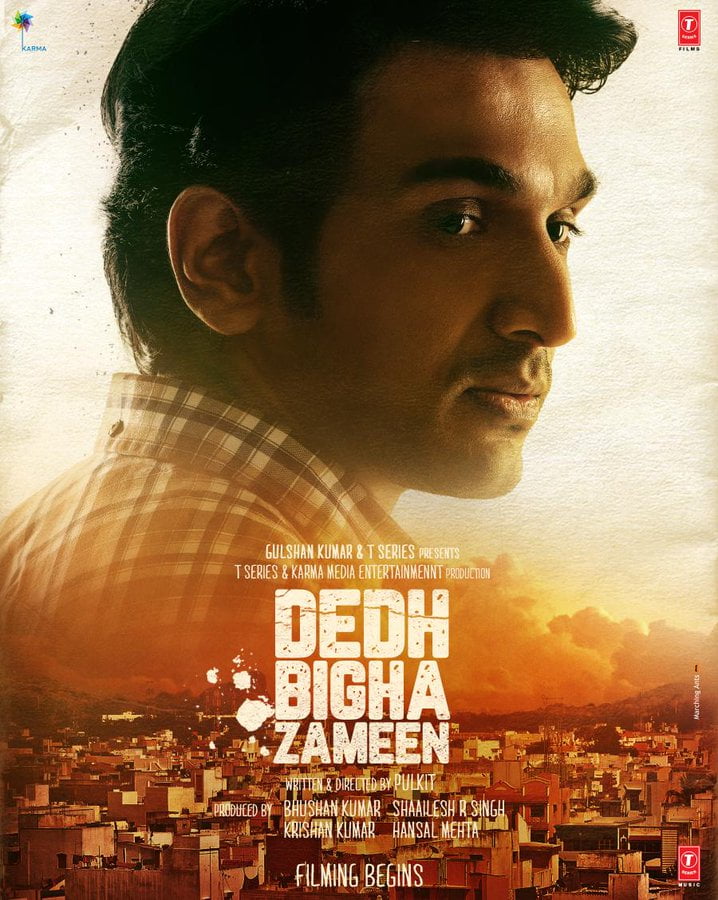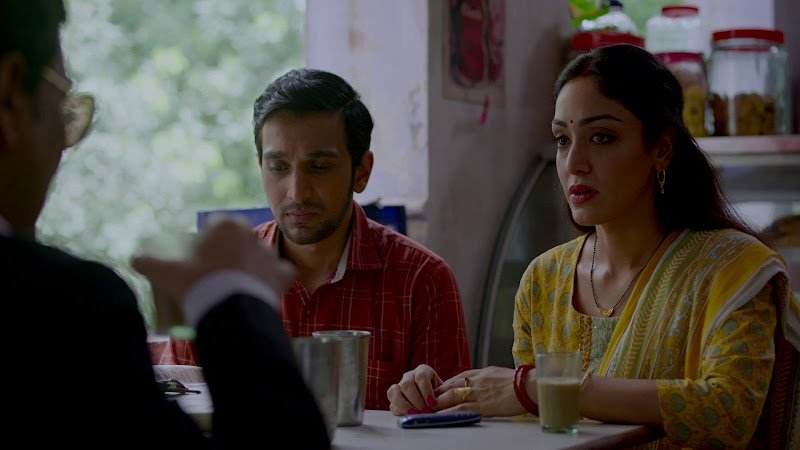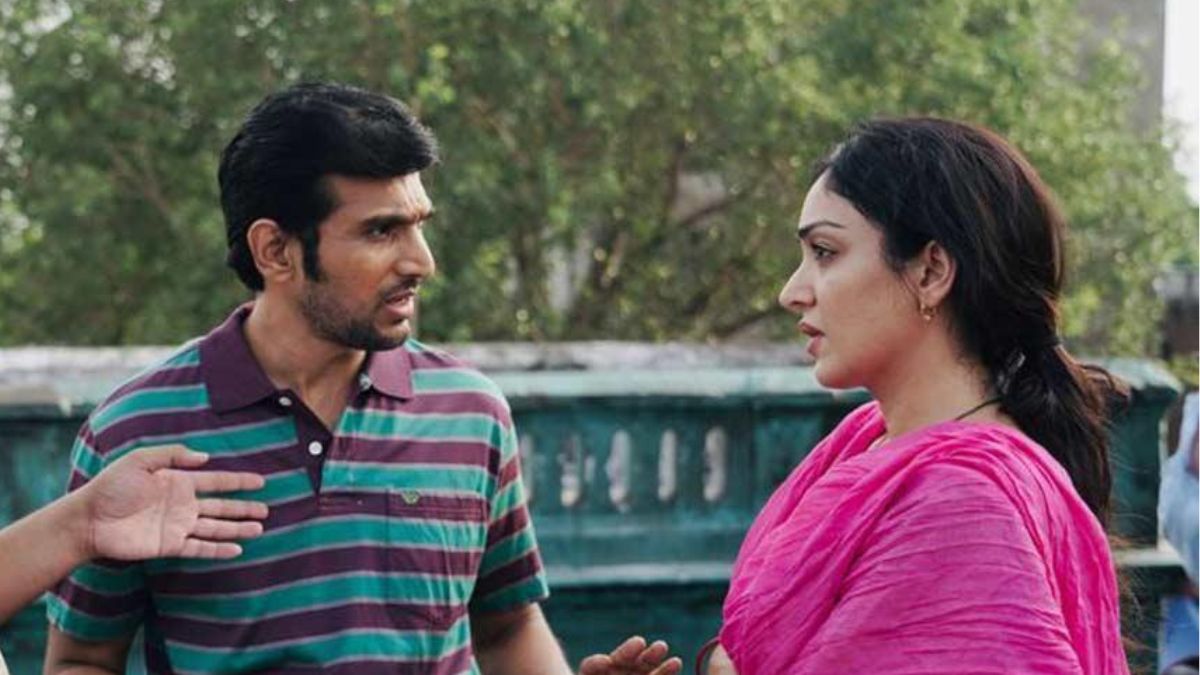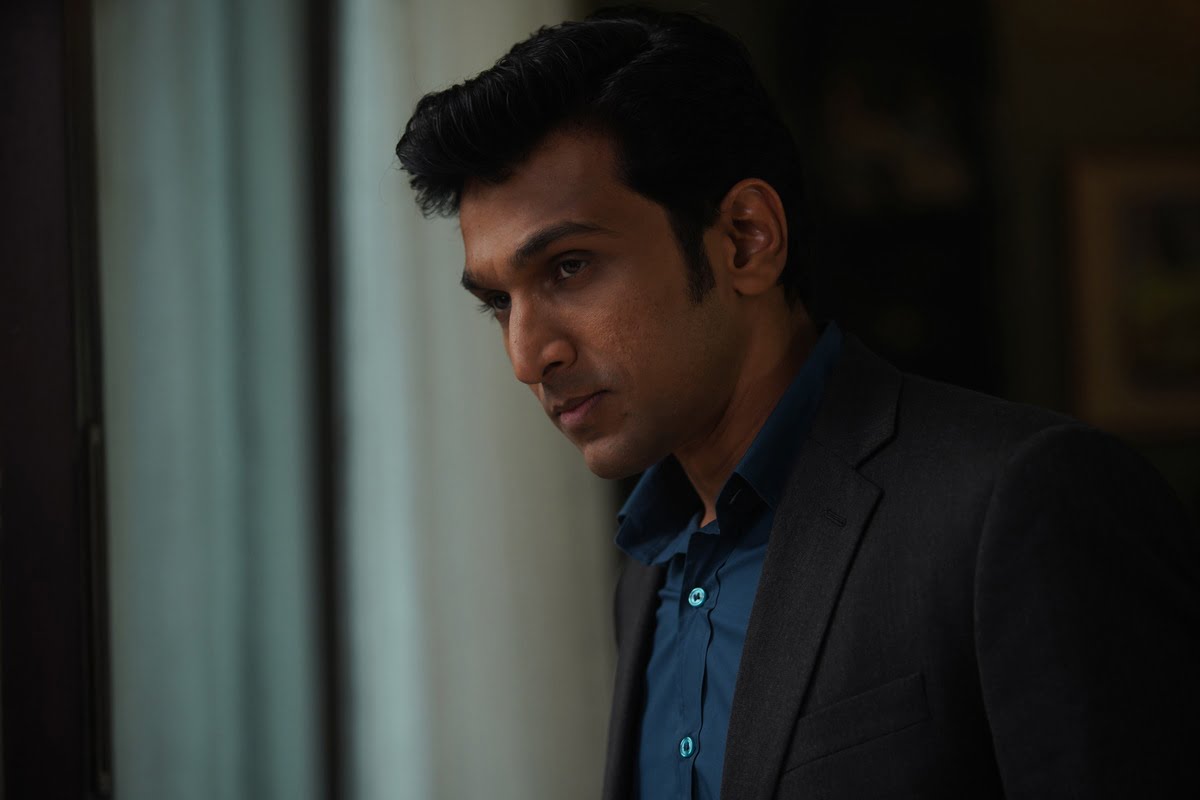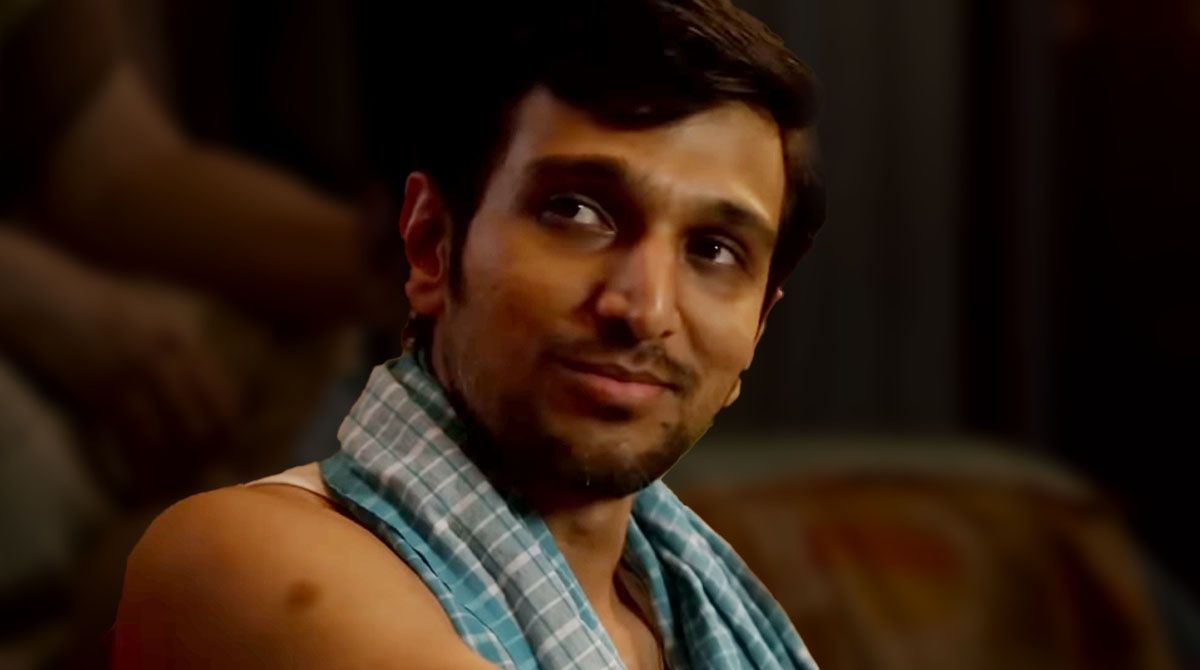A family man trying to provide for his family gets caught up in systematic corruption and what follow are unending ripples of the powerful asserting their might. Dedh Bigha Zameen is a drab tale of us versus them, the powerful and the helpless. It shines in some parts but is a tale told repeatedly.
Dedh Bigha Zameen is a drab tale of us versus them, the powerful and the helpless. It shines in some parts but is a tale told repeatedly.
The plot of Dedh Bigha Zameen lays its foundation on the backdrop of a dowry demand. It is a 90s setting scene with the ladkewala coming to see the girl. The casual remarks of a suitable family (dhang ka parivar) are thrown here and there. Then follow the almost subtle demands for dowry, cash, jewellery, and an SUV car.
The groom is a polytechnic pass unemployed boy valued at 25 Lacs, a white Scorpio car and gold jewellery. The negotiation about the money is a “dealbreaker” says the father of the groom, an important cause in the film’s unfolding. The bittersweet feeling at the acceptance of the marriage proposal seems evident on the faces of the women of the house.
Dedh Bigha Zameen: the coveted land
Fulfilling the dowry demand is possible only if the lead, Pratik Gandhi, can sell his ancestral land. The dedh bigha zameen at the roadside is in an ideal location. The property dealer (Vivek) played by Deepesh Sumitra Jagdish tells Anil (Pratik Gandhi) to let go of all his tensions and assures him of the valuation of the property.
While Anil rests assured, the land is stolen by the legislator. What ensues is a long-stretching and toiling pursuit of claiming the land. Pratik Gandhi does everything by the book. He complains to the police, requests the legislator and even fights for his rights, but fails.
The common man in Dedh Bigha Zameen
The common man is glorified in Dedh Bigha Zameen. He is helpless, the only breadwinner, has no desires of his own and is always caught up in a fight. This film might not create a dent in the path of cinema but is an interesting piece for masculinity studies. The man is expected to bear the burden and smile, never complaining.
Anil becomes a favourite because he is one of us. A common man unaware of the judicial complexities and workings of the corrupt world. He is a son who wants to do right by his mother, a husband trying to honour his wife’s wishes, and a brother toiling to get his sister married.
He is so caught up in his responsibilities that he takes no time for himself. He doesn’t have a self, he is dedicated to fulfilling his family duties and wiles away under the burden.
The invisible women
There are three major and a few minor female characters in Dedh Bigha Zameen. They are mostly flat characters and are not developed fully. Only Anil’s character is sketched completely, the women become a pawn in the plot. They supply the hero with a purpose.
Only Anil’s character is sketched completely, the women become a pawn in the plot. They supply the hero with a purpose.
Pooja played by Khushali Kumar is an ideal wife. She smiles, cooks, and cleans. She has been given a few moments of sanity and opinion. In some scenes, she is the only one with an opinion and tries to convey it, hesitatingly. She is against dowry, wants the sister to go to Delhi and study, and wants Anil to call off the marriage.
Neha, Anil’s sister played by Prasanna Bisht, is a silent doll. She gives purpose to the plot but never utters a word. She doesn’t have an opinion. She is a twenty-two-year-old woman who is never disturbed by the mention of dowry or the condition of her family. She does passively taunt her could-be-husband but never asserts herself.
A 21st-century woman, she is gifted a mobile phone by her groom for the first time and spends all her time at home, cooking. She is meek and unaware. She is the ideal homemaker the patriarchal society dreams of and is even discarded when kidnapped. The propagated idea is that a woman touched by another man goes rotten and is not for consumption by a man from a decent family.
The mother in Dedh Bigha Zameen is silent. As Manusmriti directs, after her husband’s death, she becomes the responsibility of her son. She does what he says and never takes an authoritative decision. She calmly lets the son take the throne and the thorns, she neither has a say in the daughter’s wedding nor the son’s burdens. At important junctures, she leaves the room for the men to talk.
A man’s possessions: land, cattle and women
Patriarchy is not just a belief in man’s superiority, it is a well-orchestrated idea based on solid reasoning. A man possesses land, cattle and women, and in a tribe, it becomes his responsibility to guard them. An enemy tribe attacks his possessions and thus wars ensue. The man fights the war, to emerge victorious and reclaim his possessions.
The fight is between the powerful and the powerless over possessing the land and claiming the territory. The masculine war of identity and assertion is shown in its complete grit.
A similar war is glorified in this film- the war of reclaiming the land, Dedh Bigha Zameen. The fight is between the powerful and the powerless over possessing the land and claiming the territory. The masculine war of identity and assertion is shown in its complete grit.
The hierarchical corruption in Dedh Bigha Zameen
Pulkit showcases hierarchical corruption beautifully in his film. The audience relates to the protagonist and sympathises with his helplessness. The staunch samosa-eating police officer always refuses to act and the judicial system twists loopholes of paperwork and exploits the ignorant exposing the never-ending trail of power and its consequences.
The legislator never misbehaves with Anil himself. He uses his might in most passive ways. He is named the villain and all acts are attributed to him, but he never commits a crime. The hierarchical units are at play, they are enough to convey the tough message of reiterating who the powerful is.
The hierarchical wrong is not a new subject for Bollywood films, they have always been the right breeding ground for a hero. Dedh Bigha Zameen has no new fresh take or commentary on this issue either. It is the age-old tale being repeatedly told and this time is no different.
Dedh Bigha Zameen is a gritty tale that we have heard before. It does not wow, and neither does it disappoint.
Dedh Bigha Zameen is a gritty tale that we have heard before. It does not wow, and neither does it disappoint. It keeps the audience engaged and makes for a one-time family watch. It does not offer much to debate or discuss except maybe the ending.
Pratik Gandhi is almost in every frame and his impeccable acting keeps us glued. Towards the end, Anil (Pratik Gandhi) tells his wife that the most important thing is hope. With hope in his eyes and a smile of re-claiming himself, he approaches the climax that comes almost as a brief shock.
Dedh Bigha Zameen is a film that can easily be missed, but if watched empathetically, it adds a chapter to masculinity studies. It glorifies and discusses the man’s burden and leaves the audience with a lot of unanswered questions.
About the author(s)
Dr. Guni Vats is an Assistant Professor at the Department of English, Manav Rachna International Institute of Research and Studies. A PhD in Gender Studies, she is a renowned researcher, writer, and scholar.
